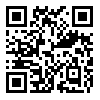Volume 3, Issue 2 (9-2022)
2022, 3(2): 33-56 |
Back to browse issues page
Download citation:
BibTeX | RIS | EndNote | Medlars | ProCite | Reference Manager | RefWorks
Send citation to:



BibTeX | RIS | EndNote | Medlars | ProCite | Reference Manager | RefWorks
Send citation to:
Banihashemi Imam Gheysi F, Pourmohamadreza-Tajrishi M, Alizadeh H, Ghaedamini Harouni G, Ahmadi A. (2022). The Effect of Basic Skills Program on Quantitative Reasoning, Math Performance, and Working Memory of Preschool Children. Journal of Childhood Health and Education. 3(2), 33-56.
URL: http://jeche.ir/article-1-71-en.html
URL: http://jeche.ir/article-1-71-en.html
Fatemeh Banihashemi Imam Gheysi1, Masoume Pourmohamadreza-Tajrishi *1, Hamid Alizadeh2, Gholamreza Ghaedamini Harouni1, Ahmad Ahmadi3
1- University of Social Welfare and Rehabilitation Sciences
2- Allameh Tabatabai University, Tehran, Iran
3- Oregon State University, Oregon, USA
2- Allameh Tabatabai University, Tehran, Iran
3- Oregon State University, Oregon, USA
Abstract: (2922 Views)
Introduction: Successful performance in mathematics depends on skills that are more basic. The purpose was to determine the effect of basic skills program on quantitative reasoning, math performance, and working memory in preschool children.
Research Method: In a quasi-experimental study, 38 girls and 42 boys were in convenience selected from five-to six-year-old children of Borujen City in the school year 2020-2021. Then, 30 children (17 girls and 13 boys) identified as children at risk of math disorder with a score on one standard deviation lower than the average in the Stanford Binet Intelligence Test and the Basic Skills Assessment Test and m assigned to the experimental and control group. The experimental group participated in 24 training session. After the last session and five weeks later, the Stanford Binet Intelligence Test and the Basic Skills Assessment Test performed again.
Results: Relating to Eta coefficients, 88%, 29%, and 83% respectively of the variation in quantitative reasoning, math performance, and working memory of experimental group can explain by participating to the intervention sessions. The results of Bonfroni test showed that there is a significant difference between groups in pretest, posttest and follow-up phases.
Discussion: Considering the improvement of quantitative reasoning, math performance, and working memory of preschool children, we can conclude that including similar programs in preschool not only leads to improvement of math performance but also prevents academic failures.
Research Method: In a quasi-experimental study, 38 girls and 42 boys were in convenience selected from five-to six-year-old children of Borujen City in the school year 2020-2021. Then, 30 children (17 girls and 13 boys) identified as children at risk of math disorder with a score on one standard deviation lower than the average in the Stanford Binet Intelligence Test and the Basic Skills Assessment Test and m assigned to the experimental and control group. The experimental group participated in 24 training session. After the last session and five weeks later, the Stanford Binet Intelligence Test and the Basic Skills Assessment Test performed again.
Results: Relating to Eta coefficients, 88%, 29%, and 83% respectively of the variation in quantitative reasoning, math performance, and working memory of experimental group can explain by participating to the intervention sessions. The results of Bonfroni test showed that there is a significant difference between groups in pretest, posttest and follow-up phases.
Discussion: Considering the improvement of quantitative reasoning, math performance, and working memory of preschool children, we can conclude that including similar programs in preschool not only leads to improvement of math performance but also prevents academic failures.
Type of Study: Research |
Subject:
Special
Received: 2022/06/26 | Accepted: 2022/07/23 | Published: 2022/09/11
Received: 2022/06/26 | Accepted: 2022/07/23 | Published: 2022/09/11
Send email to the article author
| Rights and permissions | |
 |
This work is licensed under a Creative Commons Attribution-NonCommercial 4.0 International License. |


